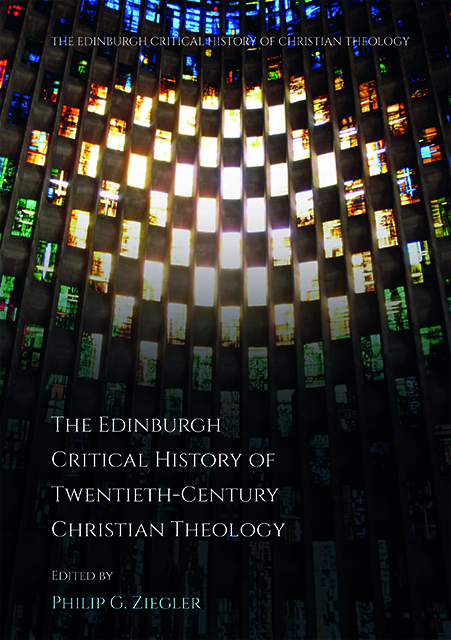Book contents
- Frontmatter
- List of Contents
- Notes on Contributors
- Editor's Introduction
- 1 Modern Theology in a Scientific, Historical Age
- 2 Tradition and Innovation
- 3 Scripture and Criticism
- 4 Reason, Method, System
- 5 Catholicism and Ecumenism
- 6 Fundamentalism and Evangelicalism
- 7 Synagogue, Sho’ah and State
- 8 Religion(s)
- 9 God
- 10 Spirit
- 11 Christ
- 12 Liberation and Freedom
- 13 The Secular – The Political: Augustine and Political Augustinianism in Twentieth-Century Political Theology
- 14 Globalisation after Empires: World Christianity and the Theological De-centring of Europe
- 15 War and Peace
- 16 Race and Black Theology
- 17 Sex and Gender
- 18 Hope
- Index
12 - Liberation and Freedom
Published online by Cambridge University Press: 14 July 2023
- Frontmatter
- List of Contents
- Notes on Contributors
- Editor's Introduction
- 1 Modern Theology in a Scientific, Historical Age
- 2 Tradition and Innovation
- 3 Scripture and Criticism
- 4 Reason, Method, System
- 5 Catholicism and Ecumenism
- 6 Fundamentalism and Evangelicalism
- 7 Synagogue, Sho’ah and State
- 8 Religion(s)
- 9 God
- 10 Spirit
- 11 Christ
- 12 Liberation and Freedom
- 13 The Secular – The Political: Augustine and Political Augustinianism in Twentieth-Century Political Theology
- 14 Globalisation after Empires: World Christianity and the Theological De-centring of Europe
- 15 War and Peace
- 16 Race and Black Theology
- 17 Sex and Gender
- 18 Hope
- Index
Summary
The question of freedom has occupied Western philosophy and theology since their beginning. It has been approached from different angles, several epistemological and disciplinary perspectives, and with a variety of broader social and political contexts and underpinnings. My interest in this article is not to go through that extensive history but rather concentrate on how the concepts of freedom and liberation have been re-examined and reinterpreted in contemporary theology since the late twentieth century.
Especially the issue of liberation has been at the heart of various liberation theologies and their underlying political struggles. I will concentrate of liberation theology in the broad sense – or liberation theologies in the plural – especially on liberation and contextual theologies of the Global South (Latin America, Asia and Africa), Black theology and feminist theology. The last – which is not always called ‘feminist’ theology – is a cross-cutting way of thinking from a critical gender perspective within other liberation theologies. This has led to womanist and mujerista theologies, of African-American and Latina women's perspectives in the United States, and feminist liberation theologies elsewhere. The gender perspective has provided a critical perspective on how freedom and liberation have (not) been adequately elaborated even within these new theologies, which claim to have these two concepts at the heart of their work.
Since issues of freedom and liberation are central also in secular, non-theological, political movements and ways of thought (against racism, sexism, homophobia etc.), I will also examine how and why an adequate understanding of religion and theology is central to take into account in any enterprise which aims at human freedom and liberation. Much of gender studies and feminism, and not just in the Global North, have an attitude towards religion in general and theology in particular which leads to an overtly one-sided treatment of religion.
Nothing between Fideism and Fundamentalism?
When browsing some theological dictionaries and encyclopedia for this article I noticed that surprisingly few of them have ‘freedom’ as a separate entry. For example, in the Dictionary of Fundamental Theology (Catholic), there is no ‘freedom’ between the entries on fideism and fundamentalism. Neither is there an entry on liberation. In this dictionary, as in most others, liberation is most often dealt with in the context of liberation theology – understandably, and as I will do here – and not as a separate entry. Feminist and liberation theology-oriented dictionaries tend to deal with both.
- Type
- Chapter
- Information
- Publisher: Edinburgh University PressPrint publication year: 2022



